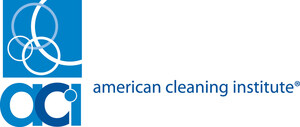Study: Significant Reduction in Bacteria When Using Antibacterial Soap vs. Non-Antibacterial Soap
Review of Published Studies Finds Antibacterial Soap is "Consistently, Statistically" More Effective than Non-Antibacterial Soap
WASHINGTON, Nov. 17, 2011 /PRNewswire-USNewswire/ -- Handwashing with antibacterial soap produces statistically greater reductions in bacteria on the skin when compared to using non-antibacterial soap.
Those are the findings of a review of two dozen relevant published studies – analyzing the effectiveness of antibacterial soaps – featured in the November 2011 edition of the peer-reviewed Journal of Food Protection.
Researchers Donald Schaffner and Rebecca Montville of Rutgers University's (New Jersey) Food Science Department conducted a quantitative analysis of existing data in order to determine if there was a difference in effectiveness between antibacterial and non-antibacterial soaps.
"A difference in the effectiveness of antimicrobial and non-antimicrobial soaps appears to exist and is repeatedly observed through a variety of analyses; antimicrobial soap is consistently and statistically always more effective than non-antimicrobial soap," the researchers wrote.
The research article, "A Meta-Analysis of the Published Literature on the Effectiveness of Antimicrobial Soap," reviewed a total of 25 publications containing 374 observations found to have examined use of both antibacterial and non-antibacterial soap in the same study.
"Although differences in efficacy between antimicrobial and non-antimicrobial soap may be relatively small, they do exist, and small but significant differences in pathogen levels on hands can have a significant effect on public health," wrote Schaffner and Montville.
Added Dr. Schaffner: "In addition to our findings on antimicrobial effectiveness, I was really struck by the similar behavior of very different species of bacteria in response to antibacterial soap. In other words, we found that antibacterial soap did its job against a variety of bacteria, including E. coli and Staph."
The research in the Journal of Food Protection (Vol. 74, No. 11 2011, Pages 1875-1882) was supported by the Topical Antimicrobial Coalition, which consists of the American Cleaning Institute and the Personal Care Products Council.
Links to this and other studies demonstrating the safety and effectiveness of antibacterial soaps are available online at www.FightGermsNow.com.
The American Cleaning Institute® (ACI - formerly The Soap and Detergent Association) is the Home of the U.S. Cleaning Products Industry® and represents the $30 billion U.S. cleaning products market. ACI members include the formulators of soaps, detergents, and general cleaning products used in household, commercial, industrial and institutional settings; companies that supply ingredients and finished packaging for these products; and oleochemical producers. ACI (www.cleaninginstitute.org) and its members are dedicated to improving health and the quality of life through sustainable cleaning products and practices.
Based in Washington, D.C., the Personal Care Products Council is the leading national trade association representing the global cosmetic and personal care products industry. Founded in 1894, the Council's more than 600 member companies manufacture, distribute, and supply the vast majority of finished personal care products marketed in the U.S. As the makers of a diverse range of products millions of consumers rely on every day, from sunscreens, toothpaste and shampoo to moisturizer, lipstick and fragrance, personal care products companies are global leaders committed to product safety, quality and innovation. For more information on cosmetic and personal care products, visit www.CosmeticsInfo.org.
SOURCE American Cleaning Institute
WANT YOUR COMPANY'S NEWS FEATURED ON PRNEWSWIRE.COM?
Newsrooms &
Influencers
Digital Media
Outlets
Journalists
Opted In





Share this article